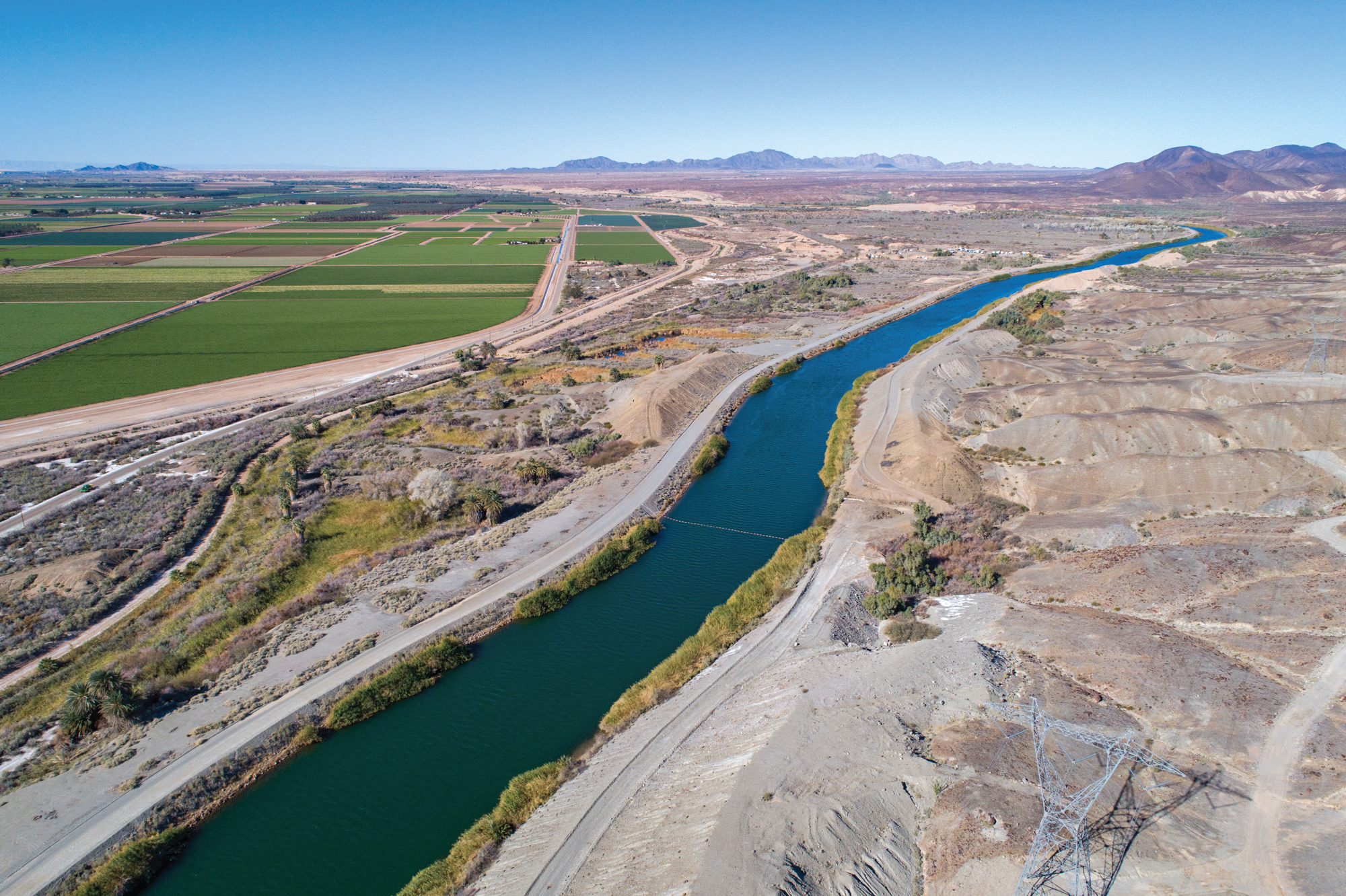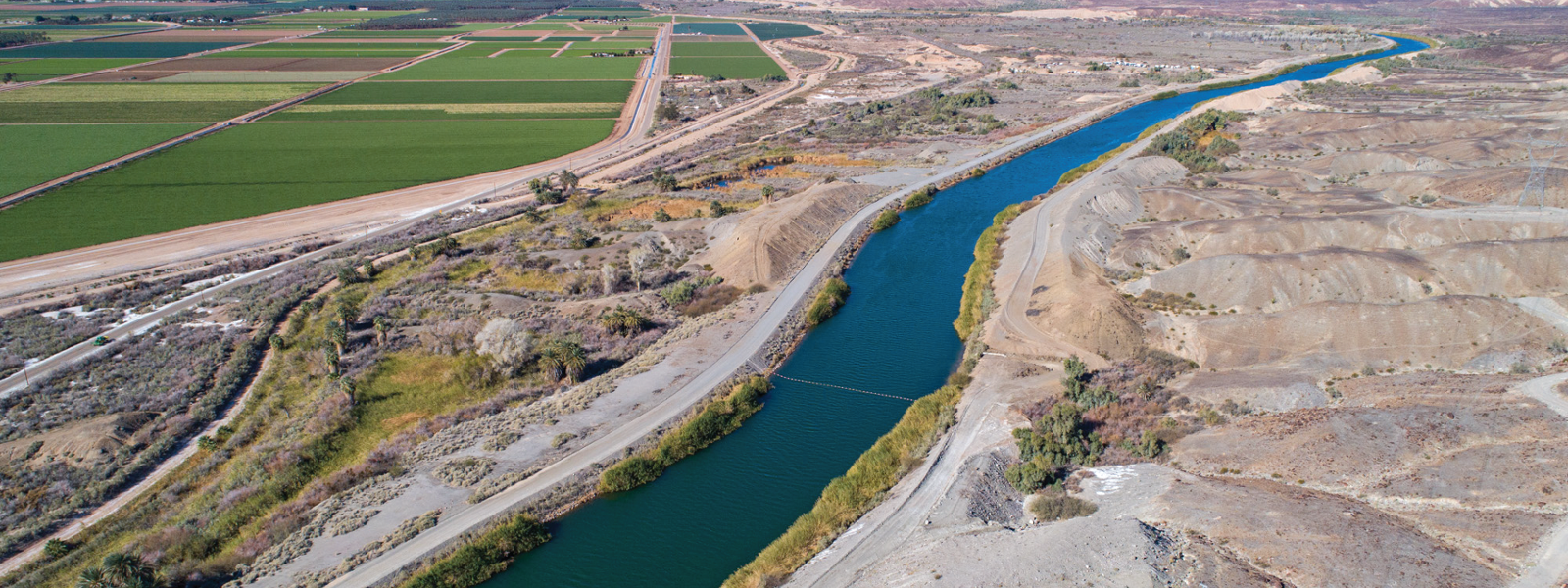Commentary: Holding firm on Colorado River water is right move


The All-American Canal carries water from the Colorado River to farms in California’s Imperial Valley. Despite having senior water rights to the river, farmers have markedly reduced water use.

By Craig William Morgan
There is an old saying in the water world that it is better to be upstream with a shovel than downstream with a law book, which is the position California finds itself in as it stands apart from its neighbors on the Colorado River in negotiations over the use of the river’s water.
On Jan. 31, representatives for the six other basin states submitted a proposal to the U.S. Bureau of Reclamation, describing the measures by which the supply deficit on the Colorado River should be closed in the near term. Not surprisingly, the other basin states have asked that California reduce its water use beyond what the state had proposed last fall.
California was right to decline its neighbors’ new proposal, notwithstanding its position on the river.
As many readers know, California water users have priority rights to Colorado River water that allow them to receive water first in times of drought. These rights are derived under the appropriative rights doctrine known as “first in time, first in right” that has been a mainstay of Western water law for more than a century and a half. Those without such rights are legally bound to reduce their use.
Not surprisingly, those without such rights have developed a new theory of law that effectively says the priority system of water allocation is no longer applicable because of climate change.
The new buzzword describing this change is “aridification.” The terms “shortage” and “drought” that have historically been used, they claim, are no longer relevant to describing water conditions. The reason for this change in nomenclature is because existing law is very clear that water is apportioned based on priority during times of shortage and drought.
They argue that aridification is somehow different. It is not.
If state and federal courts were to interpret a distinction in such terms, water law would not only be upended along the Colorado River system, but indeed across the entire United States.
The Upper Basin states of Colorado, Wyoming, Utah and New Mexico have joined the chorus of Nevada and Arizona in arguing that aridification demands the priority system be ignored. They also argue that the requirement under the 1922 Colorado River Compact among the basin states guaranteeing a fixed quantity of water be delivered to the Lower Basin states should be ignored on the same grounds.
Their fears are that such a requirement will limit their existing and proposed future diversions of Colorado River water. To date, these states’ diversions have been well below their junior allotment. The imbalance on the Colorado River, they argue, is a Lower Basin concern—not an Upper Basin concern.
But such a position is inconsistent and self-serving. If, in fact, aridification demanded that the priority system be ignored along the river, wouldn’t it make sense that all water users within the Colorado River basin take a reduction, not just those in the Lower Basin as Upper Basin users have proposed? It is noteworthy that Upper Basin states thus far have not meaningfully participated in reducing demands on the Colorado River. Yet they should.
Why haven’t Arizona and Nevada looked harder at the Upper Basin states to reduce their water use to balance demands instead of focusing on California? Perhaps they are hoping that California’s Imperial Valley will once again come to the rescue of the river’s water users as was done in 2003 when the Imperial Irrigation District signed the Quantification Settlement Agreement and reduced its water use by more than 15%. As the river’s biggest water user—and least politically potent—surely, they must have more water to spare.
The residents of Imperial Valley are right to be concerned about the future of their community. In 2003, the Imperial Irrigation District, despite holding senior water rights to the river for the benefit of its farming community, succumbed to the political pressures within California and from other basin states to reduce its demands on the Colorado River.
The argument made at the time by the river’s other water users was that the district was wasting water. However, the fact of the matter was that the district’s water use was no different than that of other irrigation districts across the West. The QSA water transfers have created significant hardships on the local communities and an ecological nightmare for the Salton Sea.
As the basin states and federal government move forward in crafting solutions to the water shortage problem on the Colorado River, they must consider the sacrifices that have already been made by those living in Imperial Valley—sacrifices by those holding senior water rights. They must also consider the damage that would be done to the legal structure governing water use across the West if the priority system is to be ignored.
(Craig William Morgan is a water resources engineer and author of “The Morality of Deceit,” moralityofdeceit.com, on the fight for Imperial Valley water. He may be contacted at craigmorgan@avalex.info.)




